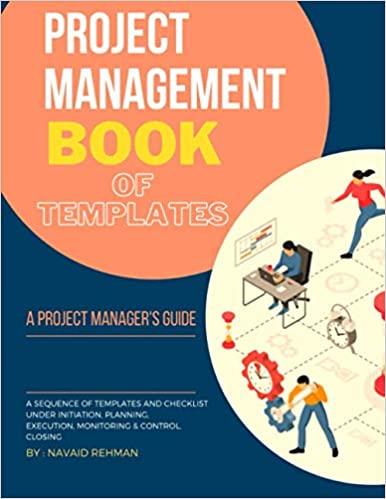Answered step by step
Verified Expert Solution
Question
1 Approved Answer
Our biggest cost is the cost of being sold out. Ethan Frisch and Ori Zohar, the two co - founders of Burlap & Barrel (
Our biggest cost is the cost of being sold out. Ethan Frisch and Ori Zohar, the two cofounders of Burlap & Barrel B&B were discussing the main concern of their business. Based in the Queens borough of New York City, B&B was a public benefit corporation that had built its business on imported spices with unique flavour profiles, purchased directly from smallholder farmers around the world. The companys initial customer base was primarily restaurant chefs in and around New York, although a small segment was devoted to individual home cooks.
In early when the outbreak of the COVID pandemic forced most restaurants to temporarily close down, B&B lost per cent of its customer base overnight. At first, the pandemic seemed to be a major threat to B&Bs survival. However, a quick and forceful shift to directtoconsumer online commerce, bolstered by national press and savvy social media marketing, enabled B&B to reach a hungry new audience. Nonetheless, the exponential growth in demand from home cooks surfaced many supply chain inefficiencies related to sourcing, storing, packaging, and transportation, which threatened to bring B&Bs fragile business model to its knees. By March the two cofounders were struggling to meet demand from both growing directtoconsumer and wholesale clients, while upholding their core ethical, environmental, and business values.
BURLAP & BARREL: FROM RADICAL ICE CREAM CART TO GLOBAL IMPORTER
Frisch was a native New York entrepreneur and activist who wanted to combine his passions for food and social justice. He had worked in some of the finest restaurant kitchens in New York and London as a cook and pastry chef. Zohar was an entrepreneur born in Israel and raised in Baltimore, Maryland, with a background in business operations and marketing. He had worked in New York as a digital marketer and communications strategist for major global brands including Mastercard, Unilever, ExxonMobil, BMW Chrysler, Burberry, and CocaCola.
The two entrepreneurs met through mutual friends in the Manhattan borough of New York when Frisch was running a small supper club out of his Chinatown apartment. The two men shared a love for food and quickly became good friends. In learning how to make ice cream in restaurant kitchens, Frisch and Zohar launched a company originally intended as a summer project that featured handcrafted smallbatch ice cream flavours such as chocolate, port wine, and chai masala. The company, which was named Guerrilla Ice Cream,
was inspired by historical prodemocracy movements such as the Movimento Popular de Libertao de Cabinda, the Velvet Revolution, and the Uprising. Guerrilla Ice Creams artisanal products quickly attracted a loyal following, with all profits donated to New Yorks Street Vendor Project.
In the fall of Frisch began graduate studies at the University of Londons School of Oriental and African Studies, where he earned a masters degree in violence, conflict, and development. After graduation, he accepted a position with a nongovernmental organization building roads and infrastructure in Afghanistan. It was there, in that Frisch discovered an exceptionally flavourful variety of indigenous mountaingrown cumin and decided that his chef friends in New York would benefit from adding this rare ingredient to their kitchens.
While Frisch was overseas, Zohar continued on his entrepreneurial journey. In he cofounded Sindeo, a venturebacked mortgage company based in San Francisco, California. The company provided consumer friendly ways to secure home loans. Zohar spent four years launching and growing the company, taking the startup from idea through acquisition. In the process, he gained firsthand experience with the opportunity and challenges of launching a venturebacked company. In he sold Sindeo and returned to New York.
At that point, Frisch and Zohar teamed up again and combined their individual skills and experiences to start B&B They began connecting with farmers in Afghanistan, Zanzibar, and Guatemala to import spices into the United States and built a business model on spices that were singlesourced, or with a direct single origin source By their supply network expanded to include farmers located in more than a dozen different countries, including Afghanistan, Cambodia, Ethiopia, Guatemala, Iceland, India, Indonesia, Sri Lanka, Thailand, Turkey, Nicaragua, Nigeria, Vietnam, and Zanzibar.
B&Bs mission was twofold: work directly with smallholder farmers to source unique, flavourful spices for professional chefs and home cooks; and set up smallholder spice farmers to export for themselves, take more control over the supply chain they initiate, and get access to highvalue markets. To further align their business model with their social impact commitments, Frisch and Zohar chose to incorporate B&B as a public benefit corporation. The Procurement challenges facing
Step by Step Solution
There are 3 Steps involved in it
Step: 1

Get Instant Access to Expert-Tailored Solutions
See step-by-step solutions with expert insights and AI powered tools for academic success
Step: 2

Step: 3

Ace Your Homework with AI
Get the answers you need in no time with our AI-driven, step-by-step assistance
Get Started


